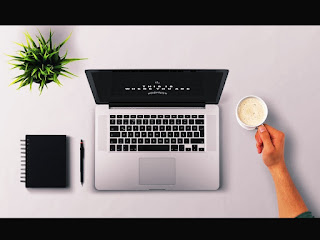Maintenance Of Laptop
Maintenance Of Laptop: A Comprehensive Guide to Improving Performance and Extending the Lifespan of Your Laptop
Maintenance Of Laptop is a crucial step in maintaining optimal performance and extending the lifespan of your device. A well-maintained laptop will provide high productivity and a pleasant user experience. In this guide, we will provide valuable tips and tricks to help you take care of your laptop properly, from cleaning to optimizing its performance. By following this guide, you can enhance your laptop's performance and avoid potential issues in the future.
1. Regularly Clean Your Laptop
Regularly cleaning your laptop is a fundamental step in good maintenance. Dust, dirt, and stains on your laptop can obstruct airflow and lead to overheating. To properly clean your laptop, follow these steps:
Turn Off Your Laptop
Ensure your laptop is turned off before cleaning its exterior and interior. This will prevent any potential injuries or further damage to the device.
Microfiber Cloth
Use a soft microfiber cloth to clean the screen and the outer surface of your laptop. Avoid using abrasive materials that may damage the surface.
Keyboard and Touchpad
Utilize compressed air to clean the gaps between the keyboard keys. You can also use a slightly dampened cotton swab with isopropyl alcohol to clean the area around the touchpad.
Ventilation
Ensure the laptop's ventilation is free from dust. Use compressed air to clean the cooling fan and laptop vents for optimal airflow.
2. Protect Your Laptop Battery
The laptop battery is a vital component that influences your device's lifespan and performance. To ensure your battery functions properly, follow these tips:
Charge and Discharge Properly
Fully charge your laptop battery before using it for the first time. Afterward, avoid overcharging it beyond 100% as it may affect the battery's lifespan.
Avoid Battery Depletion
Do not let your battery completely drain before recharging it. Look for opportunities to recharge the battery before it reaches critical low levels.
Avoid Excessive Heat
Keep your laptop away from excessive heat exposure, such as direct sunlight or high room temperatures. Heat can damage battery cells and reduce battery life.
3. Update and Protect Your Software
Ensuring your laptop's software is up to date is a crucial step in proper maintenance. Regularly update your operating system, hardware drivers, and other programs for enhanced performance and security.
Update the Operating System
Always use the latest version of your operating system. Update it automatically or manually to get the latest features and security fixes.
Hardware Drivers
Check and update your hardware drivers regularly. The latest drivers can improve hardware compatibility and enhance your laptop's performance.
Security Software
Install and update security programs like antivirus and firewall to protect your laptop from malware threats and cyberattacks.
4. Optimize Storage Space
A full storage space can impact your laptop's overall performance. Keep your laptop's storage space optimized with these steps:
Delete Unnecessary Files
Periodically check and delete files that you no longer need. Temporary files and junk files can consume valuable storage space.
Disk Defragmentation
If your laptop uses a hard disk drive (HDD), defragment it regularly to improve data access speed.
Use External Storage
Consider using external storage, such as an external SSD or cloud storage, to store files that are rarely used.
5. Avoid Overheating
Overheating can cause permanent damage to your laptop's components. Here are some ways to prevent overheating:
Keep Vents Clear
Ensure the laptop's vents are always unobstructed and not covered by any objects. Avoid placing the laptop on uneven surfaces that can block the vents.
Use Laptop in a Cool Place
Avoid using the laptop on surfaces that can retain heat, such as your lap or soft cushions. Use a desk or a specialized laptop cooling pad that provides good airflow.
Power Settings
Adjust your laptop's power settings to match your needs. Use power-saving mode when you don't require maximum performance to reduce heat generation.
By practicing proper laptop maintenance, you can improve your device's performance and prolong its lifespan. Regularly clean your laptop, protect the battery, update software, optimize storage, and prevent overheating are key steps in keeping your laptop in optimal condition. By applying the tips we provided, you will have a reliable laptop ready to tackle your daily tasks. Take care of your laptop, and it will serve you with top-notch performance for years to come.

